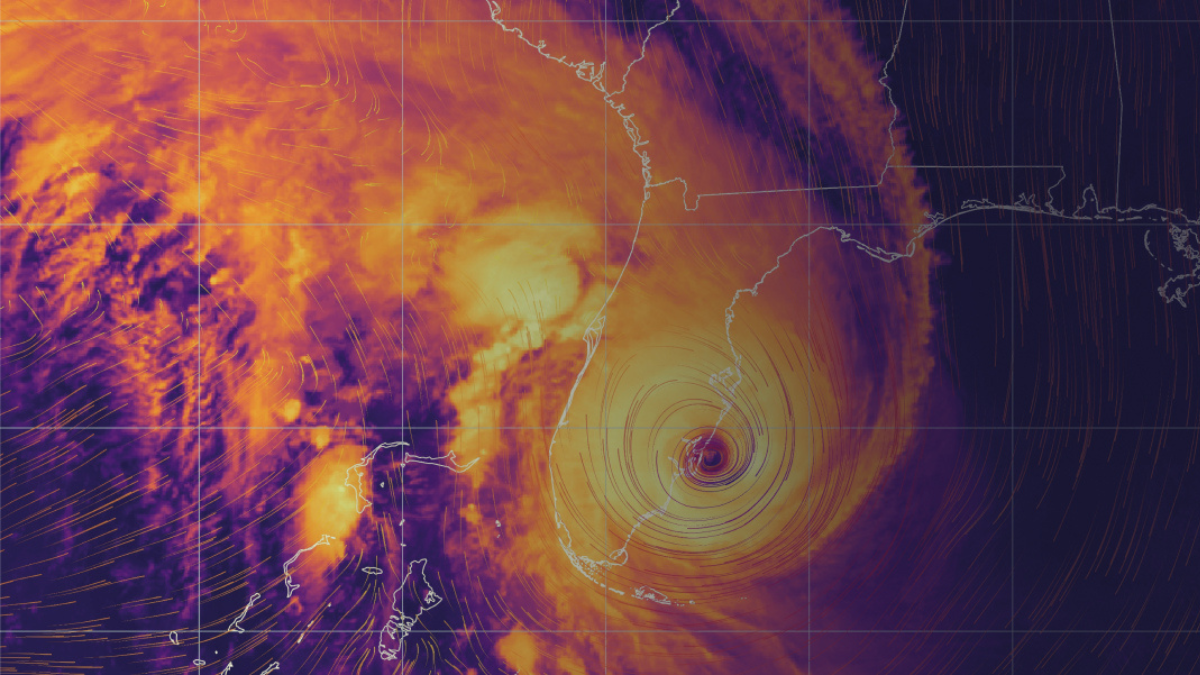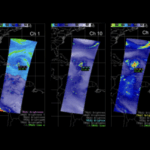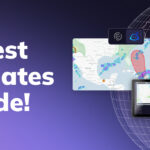As the CEOs of Tomorrow.io and Sofar Ocean, we support the reauthorization of the Weather Act to continue advancing weather forecasting capabilities, ensure public safety, and drive sustainable economic growth. Weather influences every facet of our lives, from daily planning to business operations to emergency response. Introduced by House Science, Space, and Technology Committee Chairman Frank Lucas (R-OK) and Ranking Member Zoe Lofgren (D-CA) with over a dozen cosponsors, this reimagined Weather Act – especially provisions encouraging private sector engagement – will advance weather forecasting by improving federal agency access to novel Earth observation systems and data.
The 2017 Weather Act has been instrumental in driving key advancements in weather research and observation technologies in the United States. It has fostered vital partnerships among government agencies, private entities, and academic institutions. In this era of rapid technological advancements, it is imperative that we build upon this foundation to fully leverage the potential of cutting-edge technology solutions. By reauthorizing the Weather Act, Congress has a unique opportunity to harness the power of commercial innovation and technology and build a resilient future.
Weather impacts every American daily, whether in an urban community or a rural one, and influences every economic sector, from agriculture to transportation to energy. Weather phenomena can be incredibly destructive. According to the National Oceanic and Atmospheric Administration (NOAA), in 2022 alone the United States experienced 18 separate weather and climate disasters that each cost at least $1 billion. Combined, they caused 474 fatalities. In total, 2022 weather disaster damages exceeded $165 billion. Three of those disasters were hurricanes. Hurricane Ian, which devastated the Florida Gulf Coast in September 2022, alone caused $112.9 billion in damages and led to 152 deaths. Phenomena such as hurricanes, wildfires, and atmospheric rivers require persistent observation to accurately forecast impacts on human populations. Improved forecasts enable timely warnings, which in turn mitigate damages.
Government agencies such as NOAA possess invaluable datasets and expertise. However, the commercial sector is rapidly outpacing Federal development cycles in developing cutting-edge technologies. Tomorrow.io and Sofar Ocean have contributed to this new technology wave that is revolutionizing weather forecasting and monitoring. Advanced algorithms, machine learning, and sophisticated sensing technology have significantly improved our ability to predict weather patterns, track storms, and assess environmental changes. As our respective technologies advance, we can observe and collect novel data that Federal forecasters could use to enhance their ability to protect lives and property. By partnering with innovative companies like ours, agencies can leverage our resources to expedite the deployment of, and data collection from, next-generation technologies, thereby enhancing the national understanding of weather phenomena.
We urge policymakers to further invest in research and development, incorporate commercial data into operations, and gain better understanding of commercial capabilities, such as real-time sensing, advanced modeling, and integrated solutions. Satellites, remote sensing technologies, and novel in-situ sensor networks have revolutionized our ability to monitor the planet on a global scale in real time. These technologies are already developed and operationalized in the commercial sector – the government does not need to reinvent them. Our capabilities in Earth observation can enable more accurate and timely weather forecasts, help identify emerging climate patterns, and support proactive disaster management strategies.
This is an opportunity for the 118th Congress to improve the safety and well-being of all Americans. This bipartisan legislation is a crucial step towards building a more resilient future with the potential to save lives, reduce property damage, help communities prepare for extreme weather events, and drive sustainable economic growth. As CEOs of leading technology companies, we hope Congress will reauthorize the Weather Act and urge policymakers to seize this opportunity in a bipartisan manner to secure a safer and more prosperous future for all.







